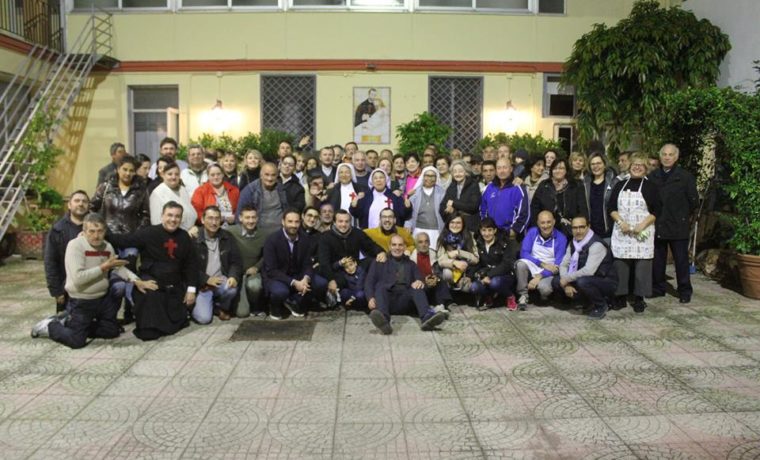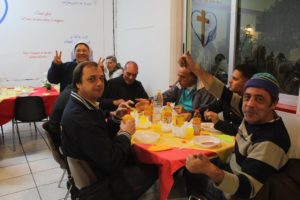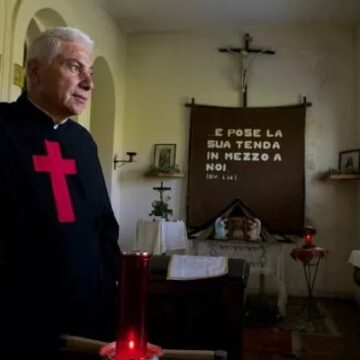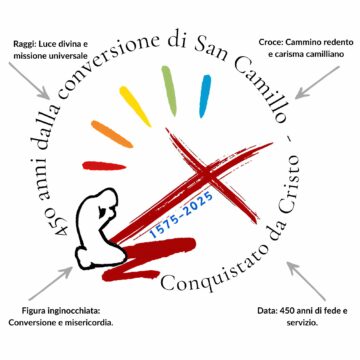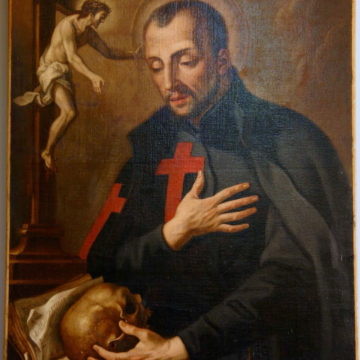If it is true that the heart of St. Camillus beats everywhere a sick person is cared for, it burns even more where the last are helped (Document of the General Chapter 2001, n. 46)
Pain, suffering and illness have no barriers or boundaries and they are often generated by – and in their turn generate – poverty, emotional disturbance, fractures in families, marginalisation, moral deterioration, and the deterioration of relationships. They traverse countries and cultures and leave behind them tears, bitterness and powerlessness.
Even if St. Camillus – moved by the zeal of an unstoppable charity – exhorted his religious to ‘dig underground to look for sick people’ when they did not find them nearby, sickness and suffering are the most evident aspects of the human experience. In different forms and with different features, the life of a human being is marked by limitation, by imperfection, by pain and by a lack of health.
Camillus de Lellis warned his religious to be attentive to perceiving the cry of pain that rises up from humanity and – like a loving mother – to be ready to respond with creativity and with their hearts.
On the horizon of the Order, illness takes on a broad and not only biological perspective. Social, psychological, moral and spiritual aspects, as well as those inherent in a lack of justice, work together to produce wellbeing or its opposite – illness.
The Order takes up the cry of pain of every human being, whatever his or her race, social class or origins. In addition, with greater devotion it dedicates itself to the poorest and to those whose illness can be a source of danger and a risk to their lives!
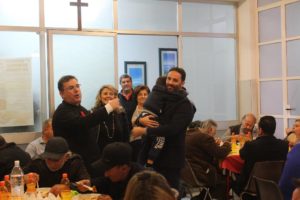 Nothing connected with human suffering is extraneous to a follower of Camillus de Lellis.
Nothing connected with human suffering is extraneous to a follower of Camillus de Lellis.
In this Camillian spirit, some communities of our Order celebrated – going ‘from words to facts, in the truth of works’ – the first World Day of the Poor (19 November 2017) which was strongly wished for and wanted by Pope Francis.
‘All the poor – as Blessed Paul VI loved to say – belong to the Church by “evangelical right” (Address at the Opening of the Second Session of the Second Vatican Ecumenical Council, 29 September 1963), and require of us a fundamental option on their behalf. Blessed, therefore, are the open hands that embrace the poor and help them: they are hands that bring hope. Blessed are the hands that reach beyond every barrier of culture, religion and nationality, and pour the balm of consolation over the wounds of humanity. Blessed are the open hands that ask nothing in exchange, with no “ifs” or “buts” or “maybes”: they are hands that call down God’s blessing upon their brothers and sisters’ (Pope Francis, ‘Message for the First World Day of the Poor’, n. 5).
At our ‘St. Camillus’ welcome centre of Acireale, Catania, Br. Carlo Mangione and the Camillian religious, with the people who work with them and volunteers, truly ‘solemnised’ this World Day with ‘three days’ of events, public debates, celebrations and prayers in order to sensitise the civil and ecclesial community to this urgent social question which is constantly growing in importance.
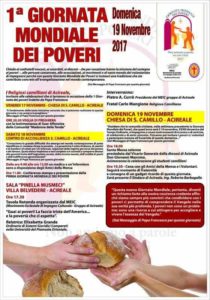 During these three days, free health care was intensified for all the ‘friends of the table’ (a table that every day provides 50-60 meals) who every day are cleaned (the offer of a shower and a change of underclothes), cared for (the offer of support at a centre for listening), and given food to end their hunger. During these days, as well, some American military personnel stationed at the base of Signonella offered their help and their abilities, above all in the health-care field, to offer their support ‘to the civil community that hosts them in their own land’.
During these three days, free health care was intensified for all the ‘friends of the table’ (a table that every day provides 50-60 meals) who every day are cleaned (the offer of a shower and a change of underclothes), cared for (the offer of support at a centre for listening), and given food to end their hunger. During these days, as well, some American military personnel stationed at the base of Signonella offered their help and their abilities, above all in the health-care field, to offer their support ‘to the civil community that hosts them in their own land’.
Pain, marginalisation, abuse, violence, domination, prison and war, the privation of freedom and dignity, ignorance and illiteracy, health-care emergencies and lack of work, trafficking and slavery, exile and acute poverty. The list of the ‘thousand faces’ of poverty is at the centre of the World Day of the Poor. We often raise walls and fences against them so as not to see them and not to touch them, from the other of our ‘brazen wealth’.
Whether we want this or not, at least last Sunday we were ‘obliged’ to open our eyes in order to observe, perhaps with irritation, that the poor exist, and that there are neighbours; indeed, more than we think. We are called to a sober and constant style of ‘sharing’ with them so as not to love with words but with facts; like Francis of Assisi with the leper. The poor, admonishes the Pope in his Message, should not be the mere recipients of good voluntary work, which at times simply runs the risk of being a small panacea in order to make ourselves feel good and ‘at peace’ with our consciences.



